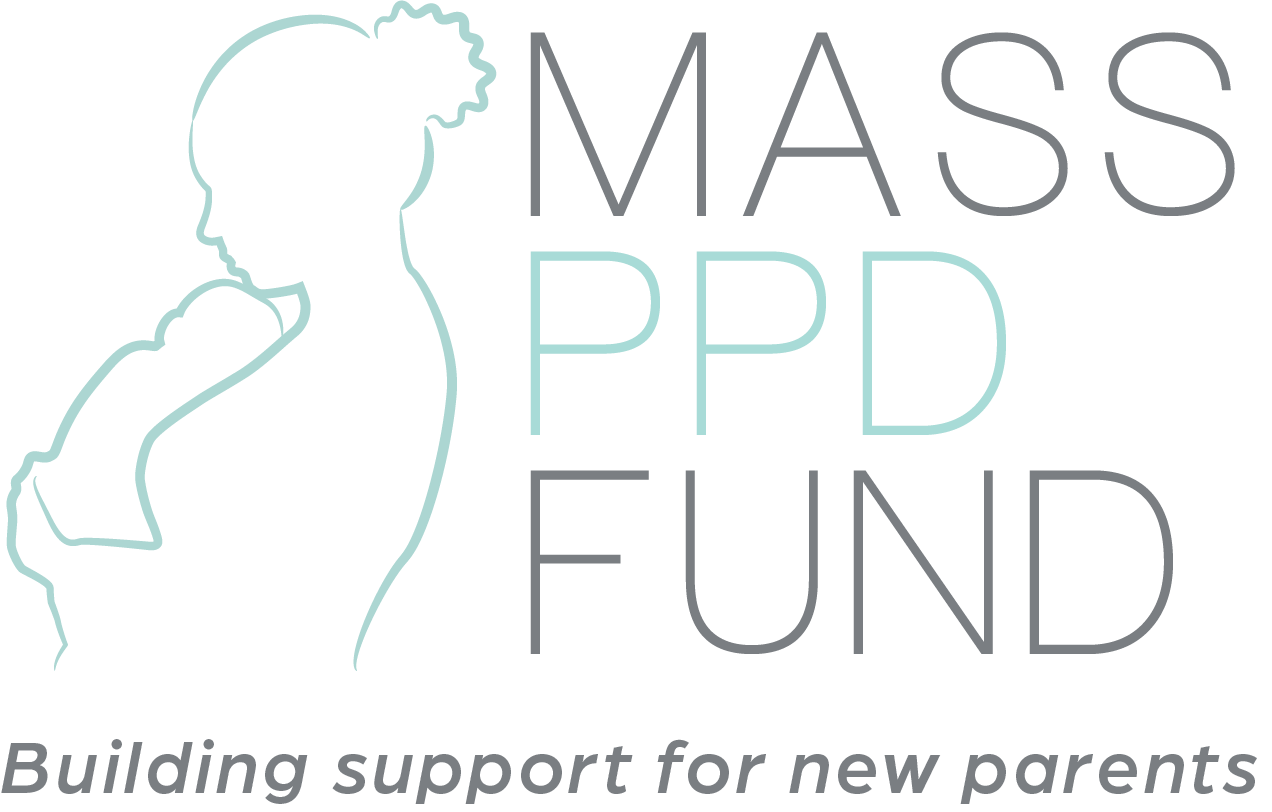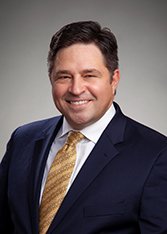International Fathers’ Mental Health Day 2022: Dan Healy
“I wish that this was discussed during the entire pregnancy process. For all the time we spent in doctors’ offices, for all the classes, it would have been great if at some point [they had talked] about postpartum depression. I mean, it doesn't happen to everyone, but it happens enough that that we should be ready. I had to experience it just to find out it existed.”
Dan Healy lives in the Boston suburbs with his wife and three children. He is a transactional real estate lawyer who enjoys playing golf, coaching baseball, performing moderate home improvement projects, and supporting his beloved Boston sports teams.
This blog is made possible by a sponsorship from Sage Therapeutics. All content on this page has been curated by the Mass. PPD Fund without input from Sage Therapeutics, Inc.
June 20 | Interviewed and edited by Jessie Colbert, Executive Director, Mass. PPD Fund
Did you have expectations about bringing home a new baby? What did you think it would be like? What were your hopes and fears?
We both really wanted to be parents more than anything in the world. Our oldest was the result of our second pregnancy. The first one did not work out – we had an early loss. It was devastating. It took a toll on us as individuals and as a unit. So that next pregnancy there was just, I guess, sort of a guarded optimism. I kind of wanted to put [my wife Ashley] in one of those plastic bubbles because I was so terrified that something might not work out. Which I'm sure was not her favorite thing…
I think we understood that there’s no way you can truly prepare for [parenthood] without doing it. That was probably the best advice I got from anyone. We took infant CPR classes, we took diaper changing classes. We took breastfeeding classes – the fellas I worked with had a lot of fun with the fact that I left early to make sure I went to that, too! I wanted to be the best partner I could.
At no point were we taught about postpartum depression – what the signs are, what the feelings are that that could come around. I didn't know to keep an eye out for whether my wife was dealing with these awful emotional complications after our first kid was born. We were absolutely not ready for the potential emotional complications for either of us.
Your wife Ashley [featured in Amplifying this January] had a terrible experience with postpartum depression after your first child was born, as you mentioned. What was that time like for you?
I actually landed my dream job about a week before our first kid was born. I was in a tough spot because I was transitioning out of my old [job], so I couldn't really take anything resembling adequate leave. And so when our son was only five days old, I went back to work. I was at one of these big law firms, and they were wonderful about everything, but the reality is some jobs take a lot of hours. And while trying to establish myself at that place, I was trying to be the most supportive partner I could at home, but without knowing the full extent of Ashley’s postpartum depression. Now, if you don't know what you're up against, there's no way to do a good enough job. I was also exhausted. I’m sure nothing compared to her level of exhaustion as someone who's dealing with postpartum depression and a first-time mother dealing with a newborn. It was incredibly difficult on us.
And I didn't experience anything like [postpartum depression]. You expect you're going to hold your baby for the first time and just be over the moon. And I was! It’s a level of love you don’t know about until you see that kid. But, you know, she had expected to have that feeling, and instead there were other emotions going on in her. And then you can start to feel guilty: am I doing this wrong? Do I not love my baby enough? And I can tell you, she loves that baby enough. She's the best mom in the world. But she probably didn't feel like that. And I wish I had known so I could have been the kind of supportive partner she needed. And maybe we would have known to seek some professional help.
Ashley had a very medically complicated third pregnancy, and I know it was after that that you went through postpartum depression. How did you experience that time? When did you realize something was “not right” for you?
So that pregnancy was terrifying. There were a lot of medical complications. Ultimately, she was diagnosed with hyperparathyroidism and had to have throat surgery at 30 weeks. I'll never forget when she went in for the surgery, she says, You know, obviously this is unlikely, but if something goes wrong, I want you to be happy. I'm never gonna forget that. She was fine, but the fact that we were at a point where it made any sense to say that was just horrifying. We recognize how lucky we are to live where we do, where she got treated by the best in the world and she came out of it fine. And so did the baby, which was a tremendous relief.
So obviously I dealt with some fear. But, you know, I tried not to spend too much time focusing on my own emotions because I needed to be there for her. I needed to be there for the other two kids especially while she was in surgery and in recovery. And I was still working in a very demanding job. This time around I was able to get a much better leave situation from work, so I handled the other two and tried to work with the baby as much as I could.
What I did not know was to keep an eye out was for issues in myself. And shortly after I went back to work, it got bad. It got to a point where I was having trouble getting out of bed in the morning. I'd wake up and I was just stuck. And finally, one day, I got a real late start. I just couldn't get myself out of bed. When I finally did, you know, I got myself ready, got myself dressed, went into the city. I don’t know, I was in a really, really rough place that day. I ended up going to the one place on the floor where it was just completely dark. It was actually the shower room, and I just locked the door and curled up on the floor. I couldn't do my work. I couldn't see people or be around people. I didn't know what to do with myself. It was just awful.
I’ve been through some very challenging emotional times, and I've never had a moment where I just had to stop. That was unfamiliar territory for me. And frankly, that's when I knew I needed to get help. I called Ashley from work. I told her that I had just been on the floor in the shower room for a while. And, you know, she was right on target, saying, You need to call your doctor, something's going on. She sent me materials about postpartum depression in fathers. I didn't know that existed at all.
My doctor, we spoke. We had a very frank discussion. I let him know exactly where I was emotionally. He did prescribe me Zoloft, and that helped a lot. Even just having someone in the medical field who acknowledges, yeah, this is a real thing that's going on with you, and here's some stuff you should do to treat it, was nice. Having a partner who understands it is great. Being in a home where I felt comfortable that it didn't make me any less of a man, any less of a father, any less of a provider. Decades ago, I probably would have rolled my eyes at someone taking pills for feeling sad. But that's an ignorant attitude. I'm glad I know what's going on. You know, I never received a formal diagnosis of postpartum depression. There was no screening for it when the kid was born. I had to experience it just to find out it existed.
Looking back, what do you wish you had known? How can we do better in general to prevent experiences like yours?
I wish that this was discussed during the entire pregnancy process. For all the time we spent in doctors’ offices, for all the classes, it would have been great if at some point [they had talked] about postpartum depression. I mean, it doesn't happen to everyone, but it happens enough that that we should be ready. You know, we never had to perform CPR on a baby – knock on wood – but we were ready for it! And so I think this is the kind of thing that every parent to be should be told. It does not make you a bad parent if you have these feelings.
As long as I can do it without being too much of a buzzkill, when I get the news from a friend that he's going to be a dad for the first time, I try to just say, they may not mention [PPD], but it's something to look for. You know how much we love our kids, and Ashley experienced this. And it's a little more rare, but keep an eye out for yourself, too. As men, our chemical and emotional makeup can be affected when we become fathers. And it’s something we should be ready to deal with, ready to acknowledge, and ready to treat.
Do you identify as a “survivor”?
The word survivor is a funny one. Yes, I do think it's appropriate. The only reason I hesitate a little is because when I hear the word survivor, I think about cancer survivor. Or even, frankly, seeing what my wife went through when our first was born. I almost want to couch it with deference to, you know, others who have gone through life threatening things. But yes, survivor is a fine word.



